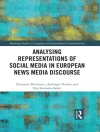Offering a new perspective on the British experience of the Second World War in Europe, this book provides a series of snapshots of the role which languages played in the key processes of British war-making, moving from frameworks of perception and intelligence gathering, through to liberation/occupation, and on to the aftermath of conflict.
Inhoudsopgave
List of Tables Preface Acknowledgements List of Acronyms Notes on the Contributors Introduction Preparing for War: the British and Foreign Languages Intelligence in Translation: Finding Out About the Enemy Role-Playing for War: the Human in Human Intelligence The War of Words: Psychological Warfare in a Foreign Language Continental Invasion: Liberation and Occupation Pursuing War Criminals: Military Interpreters in War Tribunals The British and the War Victims: Bringing Relief to Refugees and Displaced Persons Overseas The Russian Ally: Moving to Cold War Conclusions Notes References
Over de auteur
Author Hilary Footitt: Hilary Footitt is Professor and Senior Research Fellow in the School of Languages and European Studies, University of Reading, UK. Her research interests include women in politics, war and liberation in France and the development of language policy. Previous publications include War and Liberation in France and Women, Europe and the New Languages of Politics. Hilary is Principal Investigator for the AHRC project, Languages at War, and is an editorial board member for the Journal of War and Culture Studies.












